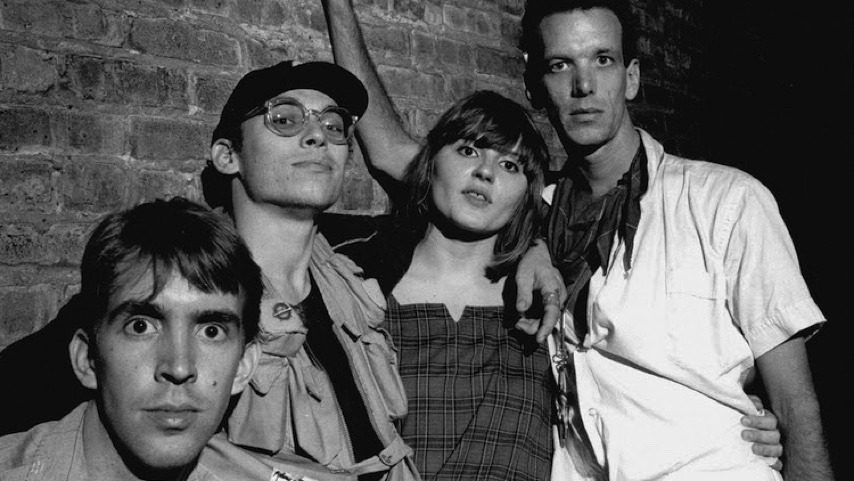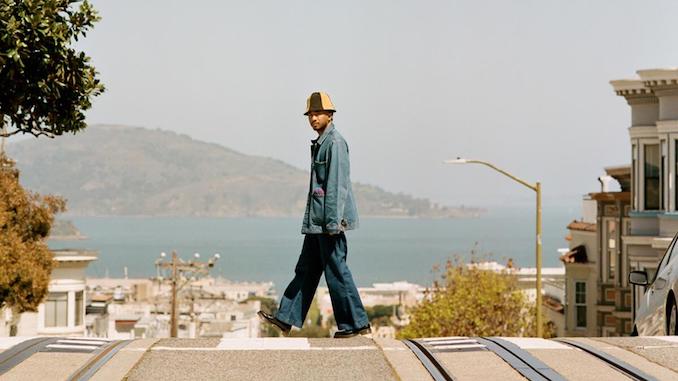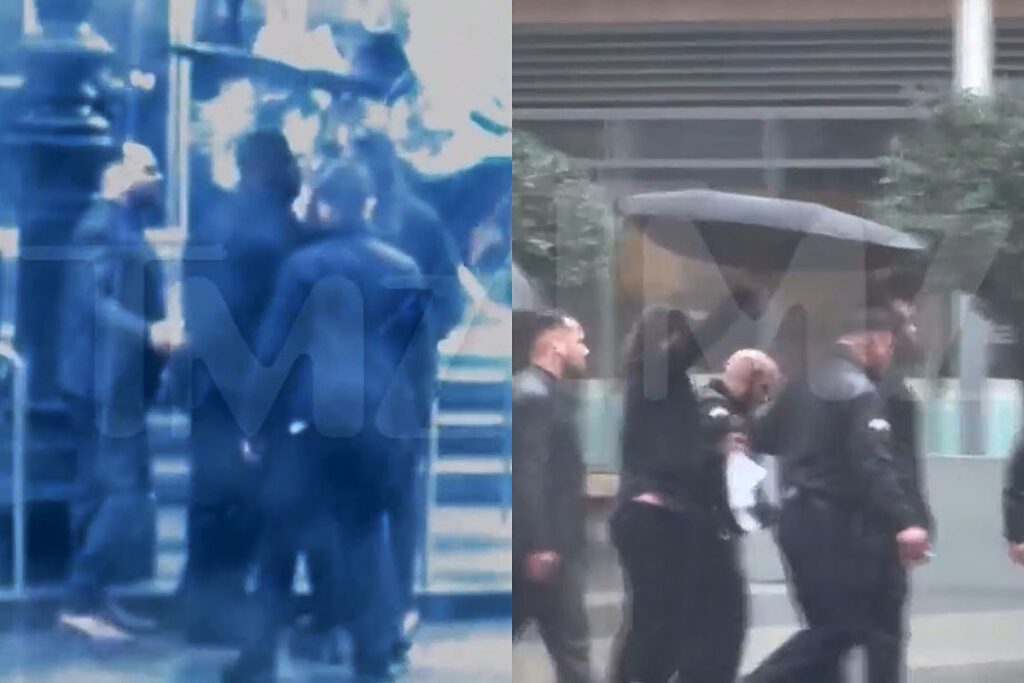In October 1979, 23-year-old Dacula, Ga., native Vanessa Briscoe was just biding her time in Athens after finishing her art degree at the University of Georgia, waiting for her husband to graduate so they could move to Atlanta or New York or whatever other metropolitan city came calling. She was working one of her two jobs, answering phones in the catalog department of the downtown JC Penney, when her friend Randy Bewley showed up to ask a question she’d never imagined being asked.
“Would you like to come and audition tonight for our band?”
Four decades and three careers later, she’s never moved away from Athens, though that band, influential post-punk quartet Pylon, provided the chance to spend plenty of time in other cities.
The history of Pylon has been compiled into Pylon Box, a 4-LP set with art book released earlier this month, capturing most of the band’s music, posters and story told by music journalist Stephen Deusner, along with remembrances from many of the musicians who were shaped by those early recordings: members of R.E.M., Sleater-Kinney, The B-52s, Deerhunter, Sonic Youth, Mission of Burma, Gang of Four, The dB’s and others.
The original idea for Pylon was more performance-art project than serious musical ambition. The college town’s first breakout stars The B-52s had just left for New York, leaving a huge hole in the budding music scene. When art students and the more eclectic townies wanted to throw a party, they needed someone to step in and play.
Bewley played guitar with his fellow art major Michael Lachowski on bass and upstairs neighbor Curtis Crowe on drums. When Vanessa (now Briscoe Hay) showed up for that first audition, she had no idea what to expect.
“They had a music-stand setup which had an orange vinyl notebook, which was appropriate, and it has some lyrics in it,” she said. “The band didn’t have a name at this point, either. They’d play a song and I’d look at the lyrics. And I was thinking, whoever wrote these lyrics wasn’t really thinking about how this melody went. I just tried to make it fit—I might extend the word or I might shorten it or whatever. All I was trying to do was trying to find my little place inside this machine that they had.”
The next day, Bewley called to tell her she was in and to explain the premise of the band. “What we’re planning to do,” he said, “is to go to New York, get written up in New York Rocker and then disband.”
“I was like, ‘Wow, that’s not gonna take up too much time out of my life.”
In a way, she was right. After playing several shows around town—including the second-ever show at Crowe’s new 40 Watt Club—the band traveled to New York at the invitation of The B-52s, even getting a mention in New York Rocker. Pylon burned bright for a few years, touring the U.S. and putting out an EP and two full-length studio albums, 1980’s Gyrate and 1983’s Chomp before the band members surprised everyone but each other by calling it quits soon after getting invited to open for U2. Briscoe Hay has no regrets.
“I was super happy to make that decision at the time,” she says. “You know, we wildly exceeded our expectations. I mean, we didn’t ever have what you hear about all these bands on Behind the Music. I just look at that and go, ‘Gosh, I really got off easy.’ We never had internal stressors and nobody was addicted to heroin. Nobody ran off with somebody else’s wife. We were really good friends. We still are. I think, in retrospect, it was a good life decision.”
Instead, she got a job managing a Kinko’s in Athens. She had her first daughter in 1987. And when interest in the band picked up again after R.E.M. covered “Crazy”—and drummer Bill Berry declared Pylon the best rock ’n’ roll band in America—she had another chance to get up on stage and channel the energy of a dozen whirling dervishes with a reunion in 1989, opening a stretch of shows on R.E.M.’s Green tour.
“I think it was Michael [Stipe] that talked with the guys, and they said ‘We think the world might be ready for you now.’ And I was like, ‘I’ve got a toddler. I have a full-time job. So if we’re gonna do this, this is going to have to be done businesslike. We did some really high-profile shows. We attended the last leg of the U.S. tour of Green with R.E.M. and went out there with B-52s and played some festivals.”
I got to see one of those shows at the relocated 40 Watt—maybe the same show that a 17-year-old Corin Tucker watched from just outside. “Vanessa was so lively onstage,” she recalls in the book that accompanies the new box set. “She gave this really visceral, physical performance that was different from anything I’d ever seen before. Music was so terrible at that time, especially hair metal where women were only sex objects and had no agency in the musical world. So seeing this band that was fronted by a woman who was such a protagonist onstage was so exciting to me as a teenager. That’s when Tracy [Sawyer] and I said we’re starting our own band! And we went back and started Heavens to Betsy.”
Briscoe Hay was a master at shifting from a calm, quiet demeanor onstage to all-out thrashing, screaming and amping up the crowd. And Bewley’s guitar served as the perfect complement.
“‘Feast on My Heart’ made it onto a lot of mixtapes I made,” Tucker’s Sleater-Kinney bandmate Carrie Brownstein also wrote in the new book. “It has a bluntness to it, but the metaphor is so vivid. It just seemed like that’s what we were all trying to say. This is a place of rawness and earnestness that we’re all trying to get at. We were all trying to honor these parts of ourselves and share them with each other. With Sleater-Kinney, if I was trying to convey an idea to Corin, sometimes we would just sit around and listen to Pylon and talk about things. And we returned to Pylon again and again for inspiration over the years, both vocally and in terms of playing guitar. There’s an endless supply of great riffs in these songs, because the guitar doesn’t have to get out of the way of the vocals like it does in so much blues and rock music. In Pylon songs the riff repeats as a counterpoint to Vanessa’s vocals, so they’re competing or creating a conversation. It adds tension to the song. That’s what Sleater-Kinney were always trying to do—make the songs sound more dire, more like conversations.”
In 1991, after Briscoe Hay gave up her job to focus on the band, Bewley decided he didn’t want to continue. Pylon operated as a four-way dictatorship, so if one member was done, they all were. Instead she took the opportunity to go back to school.
“I didn’t really like managing a store that much,” she says. “I wanted to do something that maybe has an impact on people’s lives. So I thought about teaching and nursing. We have a lot of both in both sides of my family. And I was like, ‘Well, teaching would be easy.’ I just had to get a teaching certificate because I had a BFA already. But I tried substitute teaching to be sure I could do it, and I failed miserably at it.”
Her principal said that was because she smiled too much. But she had cousins and an aunt who were nurses, and she’d helped members of her family recovering from strokes. After some more schooling, in 1994 she became a registered nurse, a job from which she recently retired after 21 years.
There were other Pylon shows along the way, and it was Bewley who got things started again in 2004.
“He came and talked to us individually and said, ‘Hey guys, I really miss y’all. Can we get together just for fun?’ And so we did and we played some shows. We flew to New York and California and put out the DFA reissues. And then he passed away in 2009. And that was the end of that.”
Without one of its members, there couldn’t be a Pylon. Briscoe Hay has performed periodically since 2014 as the Pylon Reenactment Society with some other Athens musicians, even releasing a couple of singles and playing Primavera Sound in Barcelona.
But the music lives on in Pylon Box, which includes bonus tracks like an untitled instrumental recorded in 1978, before Briscoe Hay had even joined the band, and Razz Tape, which predated the band’s first EP. The band has had a lasting impact on countless musicians, and Briscoe Hay didn’t have to give up all aspects of her life to do it.




